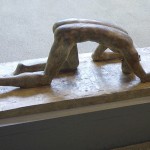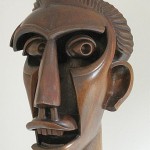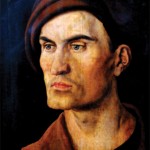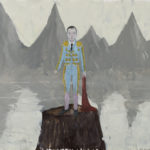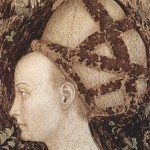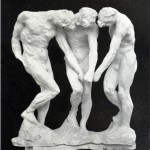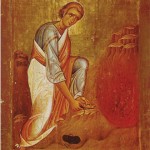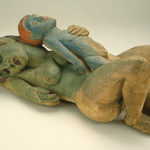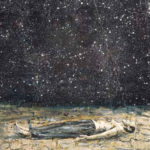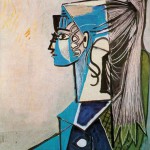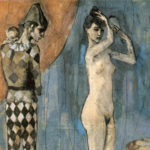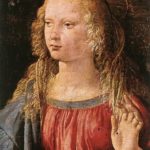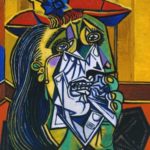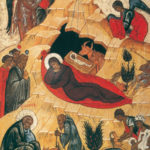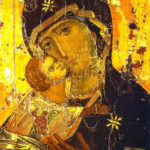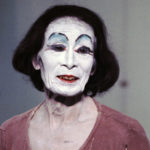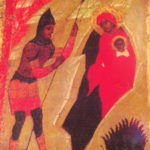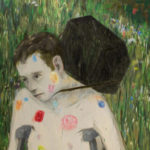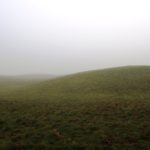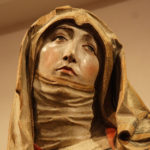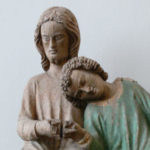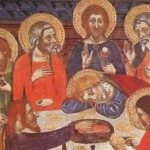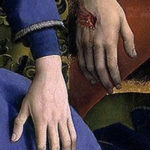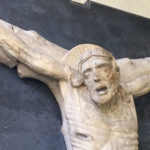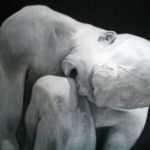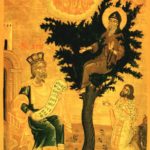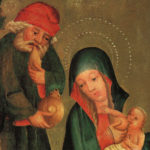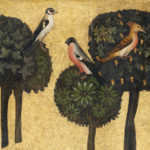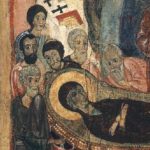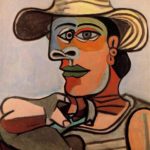He watched the bush burn without being consumed and was mesmerized because he saw motion and stillness held together as one thing. He rushed toward it despite his age and sore legs, then heard a voice and, fearful, stopped and took off his shoes.
When, finally, he climbed down from the mountain, people pointed, pulled back, cheered, exclaimed that his face shone like the sun. Light radiated from his body with each step, the dull sand sparkled under his feet. Light came from his fingers, his toes. He told himself, at last, I am aflame with love! At night, in his bed, under the sheets, he checked. It was true. His body glowed. “I bore you up on eagles’ wings and brought you to myself,” he heard God say.
Panting, he returned the next day and then a third, but saw only roots and sand. He took off his sandals but heard no voice. Through each hour of daylight then evening then night then the moon, he waited and in the morning walked home. A week passed. It was always the same. Two weeks then three. No voice, no flame. Nothing.
Eventually, he stopped climbing the mountain. His face felt cool again.
Looking in the mirror, he saw only his thinning hair, his slack shoulders, the glow gone. His family and friends jeered, resented his privilege, bitter that it hadn’t produced anything new for them. Had produced nothing useful at all.
He knew if he let disappointment come, he would crumble, so he told himself, it’s better this way. Perhaps the invisibility of God is a sign of mercy. Not only mercy but magnam misericordiam. Great mercy. He tapped the smooth surface of the glass, as if for persuasion, and said, “The Almighty was perfect when he was invisible. Actually, I am relieved. The Almighty was so . . .” he searched for the word, “so particular.”
Daily, he demonstrated to himself that fire does, in fact, consume what it burns. He liked to strike the match, to set the wood aflame. He sat outside doing nothing else. Liked to watch until the twigs burned to ash.
Over time he set many things on fire, pieces of furniture, wooden cups. He moved his bed outside, kept a fire burning day and night, constantly feeding it. This straw, this torn blanket, this chair, this picture frame.
They let him drift, alone, apart. His clothes smelled of smoke. He smeared ashes on his face, filled his mouth with ashes, coated his tongue, his ears, rubbed ashes on his eyelids, hoping to rub away the memory of what was too sweet to carry. And in this way delivered himself back to the world as he had known it. He told himself, there is no mountain, there is no God.
He felt the certainty of the world he had created, certain in all of its smallness. A flat, diminished world but one that comforted him, no longer forced to see all of the ways he was not like the God. No longer forced to see all the ways he failed at love.
But at the same time a voice inside called out,
Pity me, O God, according to Thy great mercy.
Unknown
Moses and the burning bush. Loca sancta icon, 12th century
36.22 x 25.19″
Moses & Bush Icon Sinai c12th century by McLeod is in the public domain.




